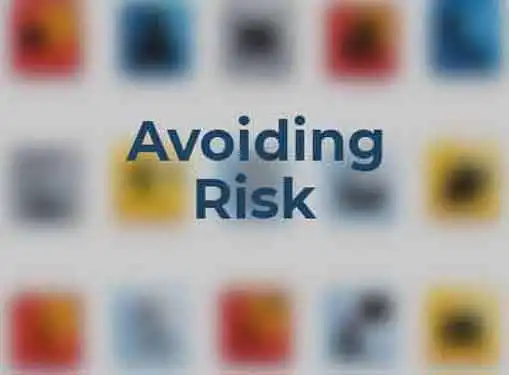Small Business Failure
Avoiding Unnecessary Risk
Entrepreneurial ventures are risky, but some tend to be much riskier than others. Many fall victim to several psychological biases that can skew judgment. Knowing how to avoid succumbing to your personal biases can help you and your business avoid taking unnecessary risk.
While there is no one right amount of risk anyone can claim is the right amount for an entrepreneur, we should be aware of the factors and judgments that are behind the risk that you take as an entrepreneur.

Taking unnecessary risk is an all too-often syndrome of entrepreneurs who fall victim to personal biases that distort their judgment and abilities to critically analyze their personal situations. The two most common biases that entrepreneurs fall victim to, are the sunk-cost bias and the confirmation bias.
The sunk cost bias has cost many people a lot of money and even their lives. The story of the Mt. Everest disaster has been studied by psychologists and business leaders alike to understand the psychological impact that biases play in our decisions.
The basic story behind the Mt. Everest disaster was that the climbing team that was on their last segment of ascending the mountain, wanted to make it to the top of Everest despite the fact a huge storm was fast approaching. Because the climbing teams had made it so far already, they felt that they couldn't' turn back now since they were so close.
So, against their better judgment and against the rules that otherwise would have been followed regarding when to descend the mountain, the team ascended to the Top of Everest. However, as soon as they began their descent form the mountain, that fast approaching storm hit and caught the climbers atop the mountain causing eight climbers to never make it down.
Lessons learned from Everest and other entrepreneurial ventures can teach us a lot about our own biases and hopefully ways to become alerted to when our biases are overtaking our better judgment. When your businesses is bleeding money, simply throwing more money into the venture because you have already invested so much is the affect of the sunk-cost bias.
No matter what you've invested to date, avoid trying to look in the past and rather base your decisions only on the future. Ask yourself, if I invest another large sum of money today, what are the likely outcomes and results going to be? Letting the past dictate your future decisions where sunk costs have been made can be disastrous as seen in such extreme cases as Mt. Everest, but also in more daily decisions we make with our businesses.
The other bias that many individuals and entrepreneurs alike fall victim to, is the confirmation bias. The confirmation bias prevents us from listening to or seeking information that would disprove your optimistic assumptions. Perhaps you enlarge the market size of the market you are entering or you over estimate what customers will actually be willing to pay for your product.
A successful approach to business planning is to not seek information that proves your assumptions correct, but rather seek information that disproves your assumptions. Trying to disprove your assumptions tends to draw out more realistic and accurate information that will be critical to your business and ultimately to your success.
Share this article
Additional Resources for Entrepreneurs

Conversation Board
We greatly appreciate any advice you can provide on this topic. Please contribute your insights on this topic so others can benefit.